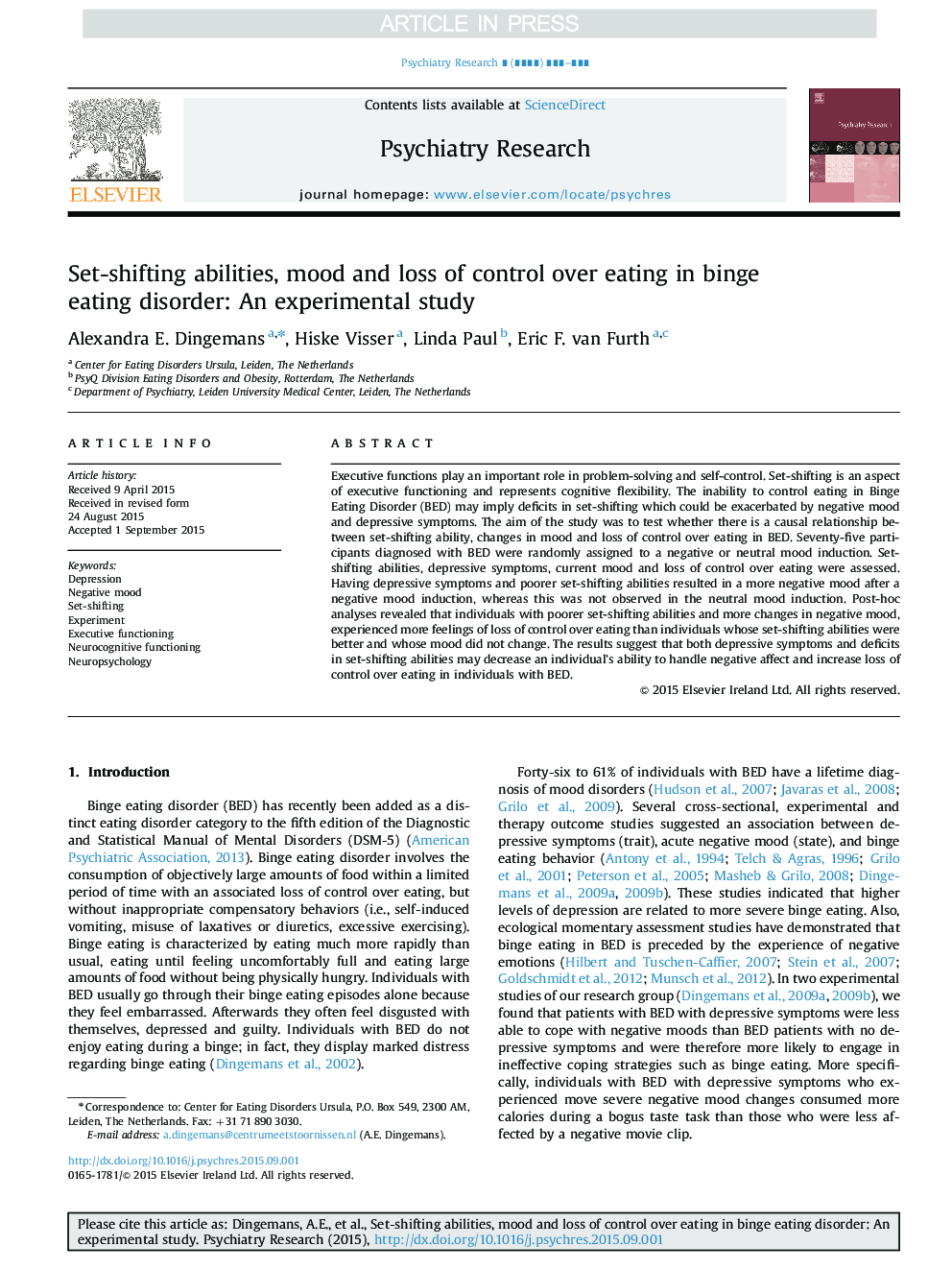| Article ID | Journal | Published Year | Pages | File Type |
|---|---|---|---|---|
| 10303583 | Psychiatry Research | 2015 | 7 Pages |
Abstract
Executive functions play an important role in problem-solving and self-control. Set-shifting is an aspect of executive functioning and represents cognitive flexibility. The inability to control eating in Binge Eating Disorder (BED) may imply deficits in set-shifting which could be exacerbated by negative mood and depressive symptoms. The aim of the study was to test whether there is a causal relationship between set-shifting ability, changes in mood and loss of control over eating in BED. Seventy-five participants diagnosed with BED were randomly assigned to a negative or neutral mood induction. Set-shifting abilities, depressive symptoms, current mood and loss of control over eating were assessed. Having depressive symptoms and poorer set-shifting abilities resulted in a more negative mood after a negative mood induction, whereas this was not observed in the neutral mood induction. Post-hoc analyses revealed that individuals with poorer set-shifting abilities and more changes in negative mood, experienced more feelings of loss of control over eating than individuals whose set-shifting abilities were better and whose mood did not change. The results suggest that both depressive symptoms and deficits in set-shifting abilities may decrease an individual's ability to handle negative affect and increase loss of control over eating in individuals with BED.
Keywords
Related Topics
Life Sciences
Neuroscience
Biological Psychiatry
Authors
Alexandra E. Dingemans, Hiske Visser, Linda Paul, Eric F. van Furth,
